In this topic we will look at:
- When to refer immediately to a healthcare professional
- Simple health advice for bladder, bowel health problems
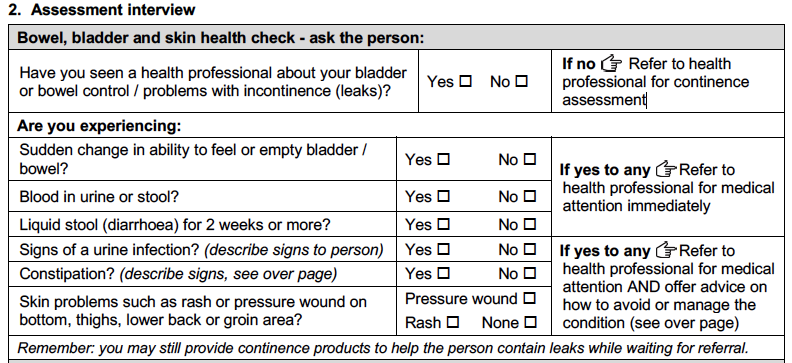
Start by asking questions to check the person’s bladder and bowel health.
Ask: Have you seen a health professional about your bladder or bowel control / problems with incontinence (leaks)?

Any person who has leaks of urine or stool will benefit from a continence assessment.
Always refer anyone who has not already had a continence assessment to a health professional.
You should still provide absorbent products to help contain leaks.
Ask are you experiencing:
- A sudden change in ability to feel or empty your bladder or bowel?
- Blood in your urine or stool?
- Liquid stool (diarrhoea) for two weeks or more?

If the answer to any of these questions is yes, the person may have a health condition that needs to be assessed and treated.
Refer to health professional immediately.
Read on to see how a health worker asked these questions.
Question

Meet Ben
Ben is 64 and lives alone. He usually meets his friends for a coffee and chat each morning.
He has constant small leaks of urine. He often wakes at night to go to the toilet. He is tired and has stopped meeting with his friends because he is worried about leaking.
Ben asked his health worker for advice. His health worker suggested an assessment for absorbent products.
This is how his health worker asked some of the health check questions.
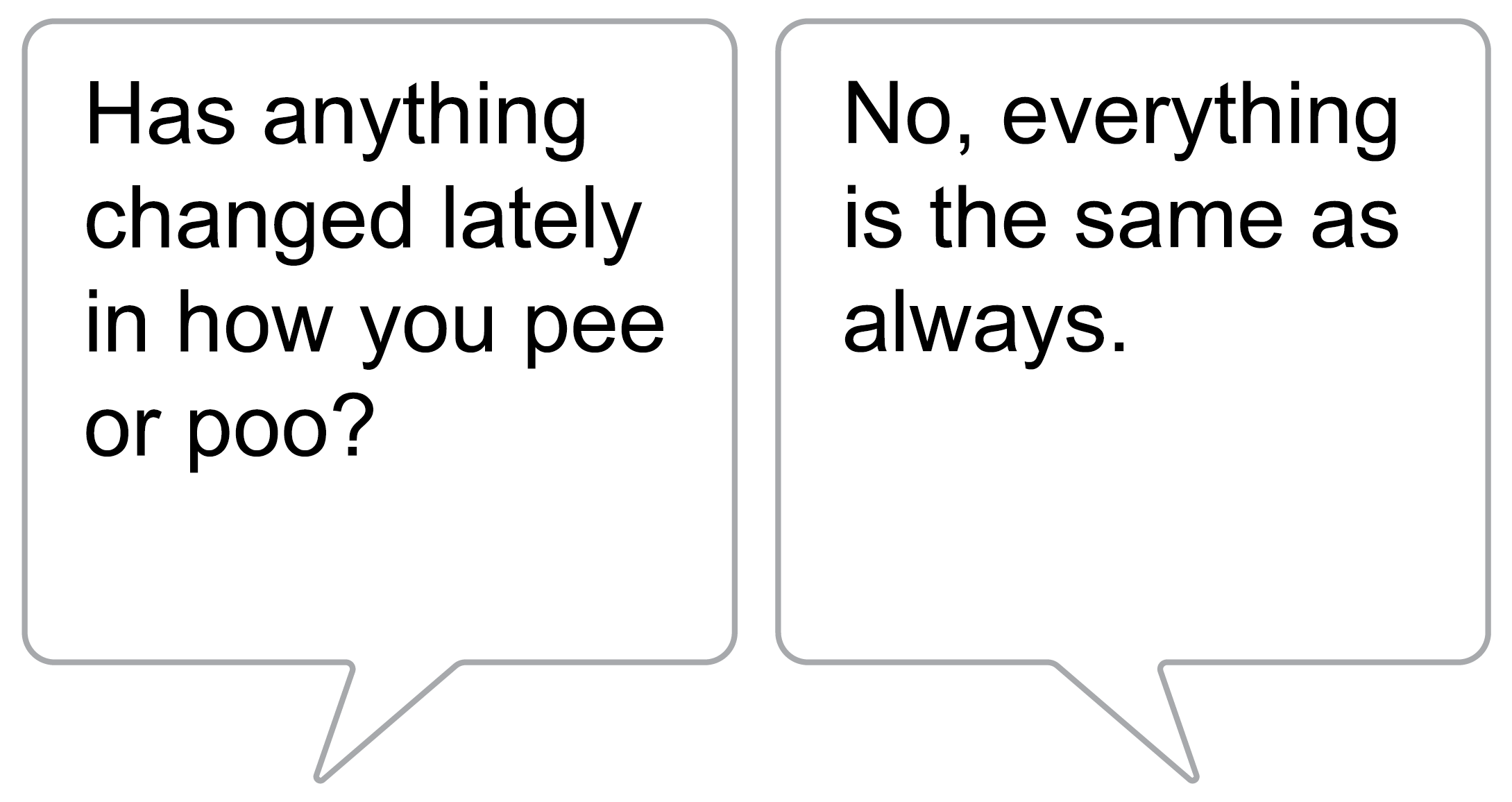
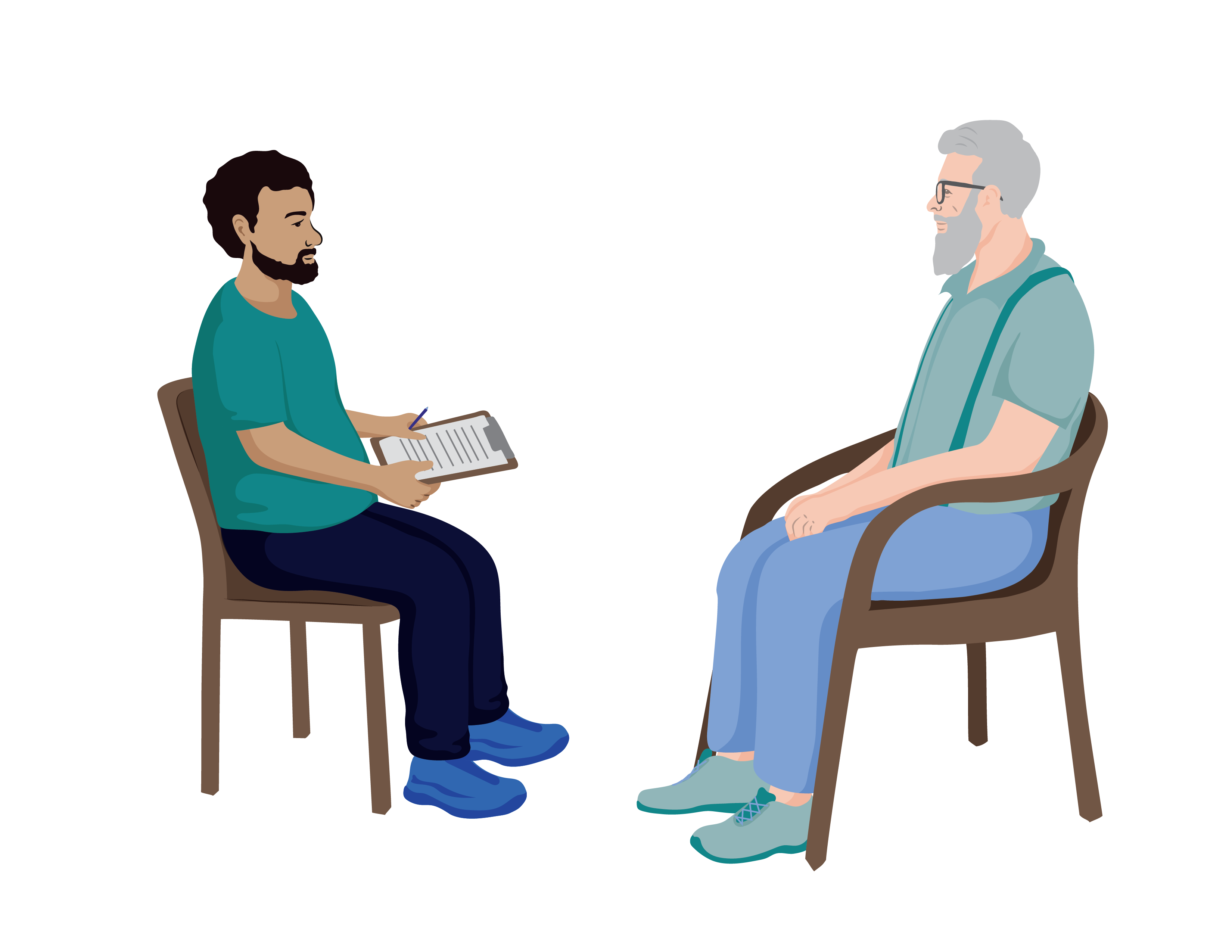
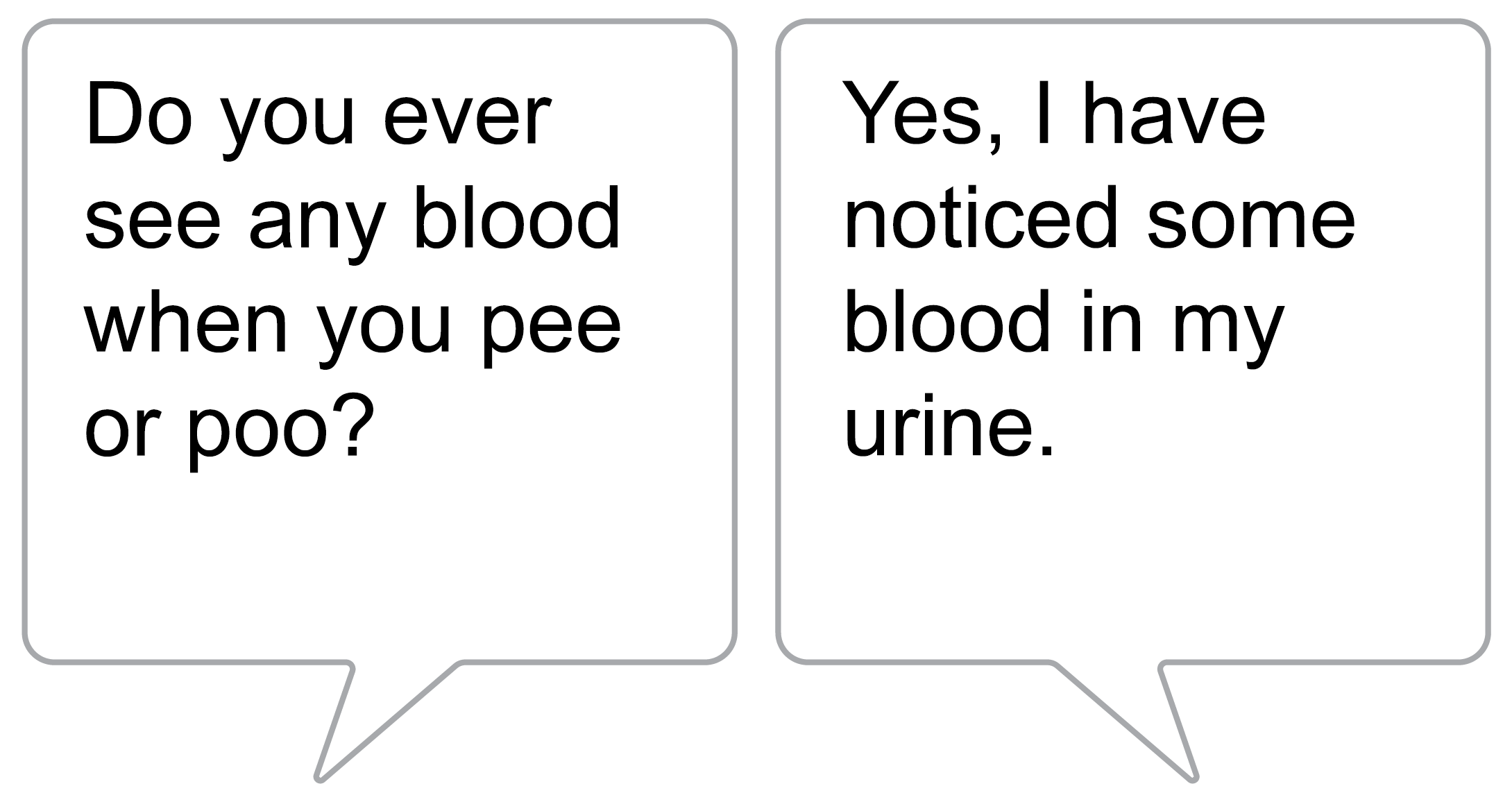

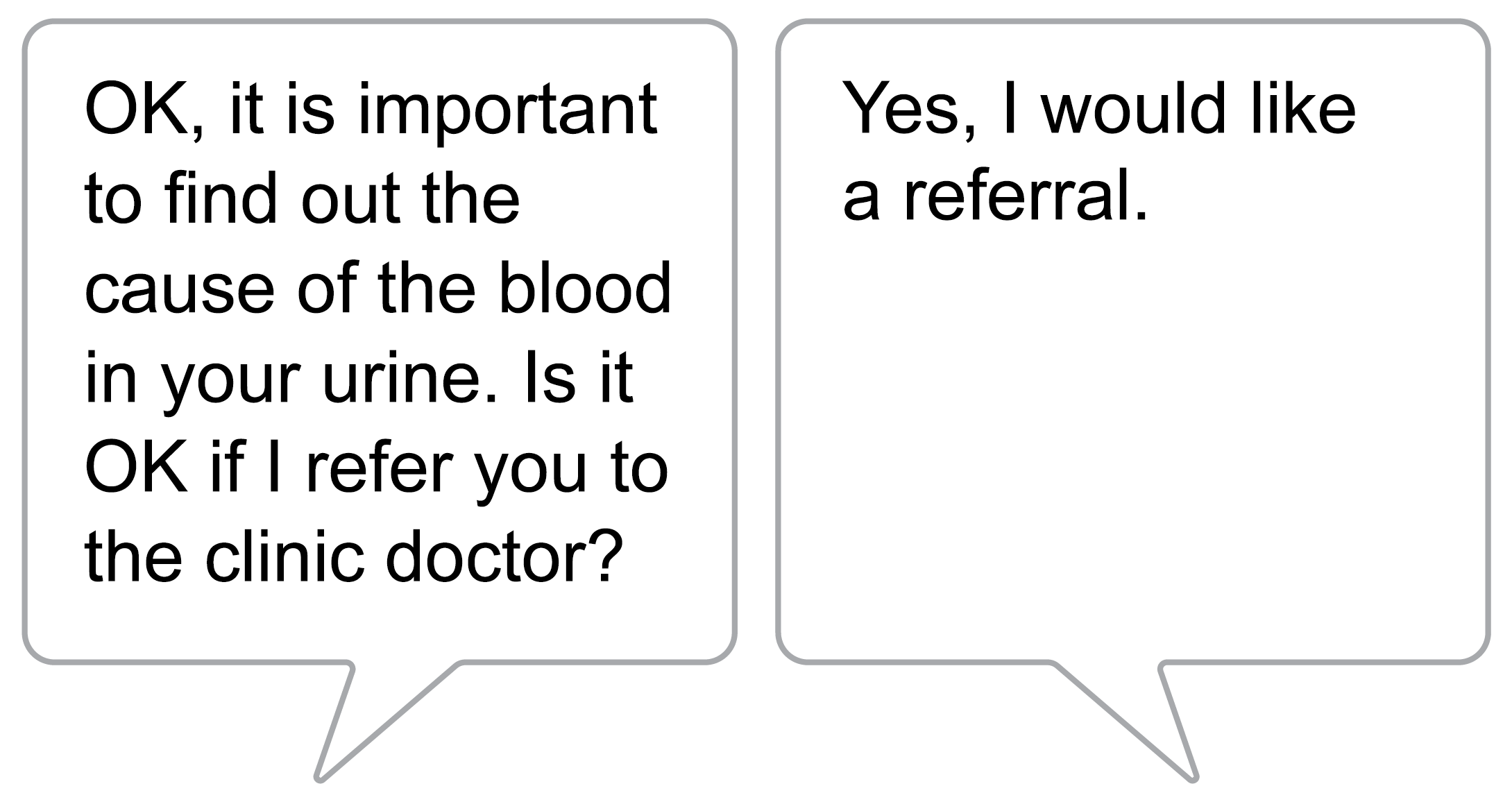

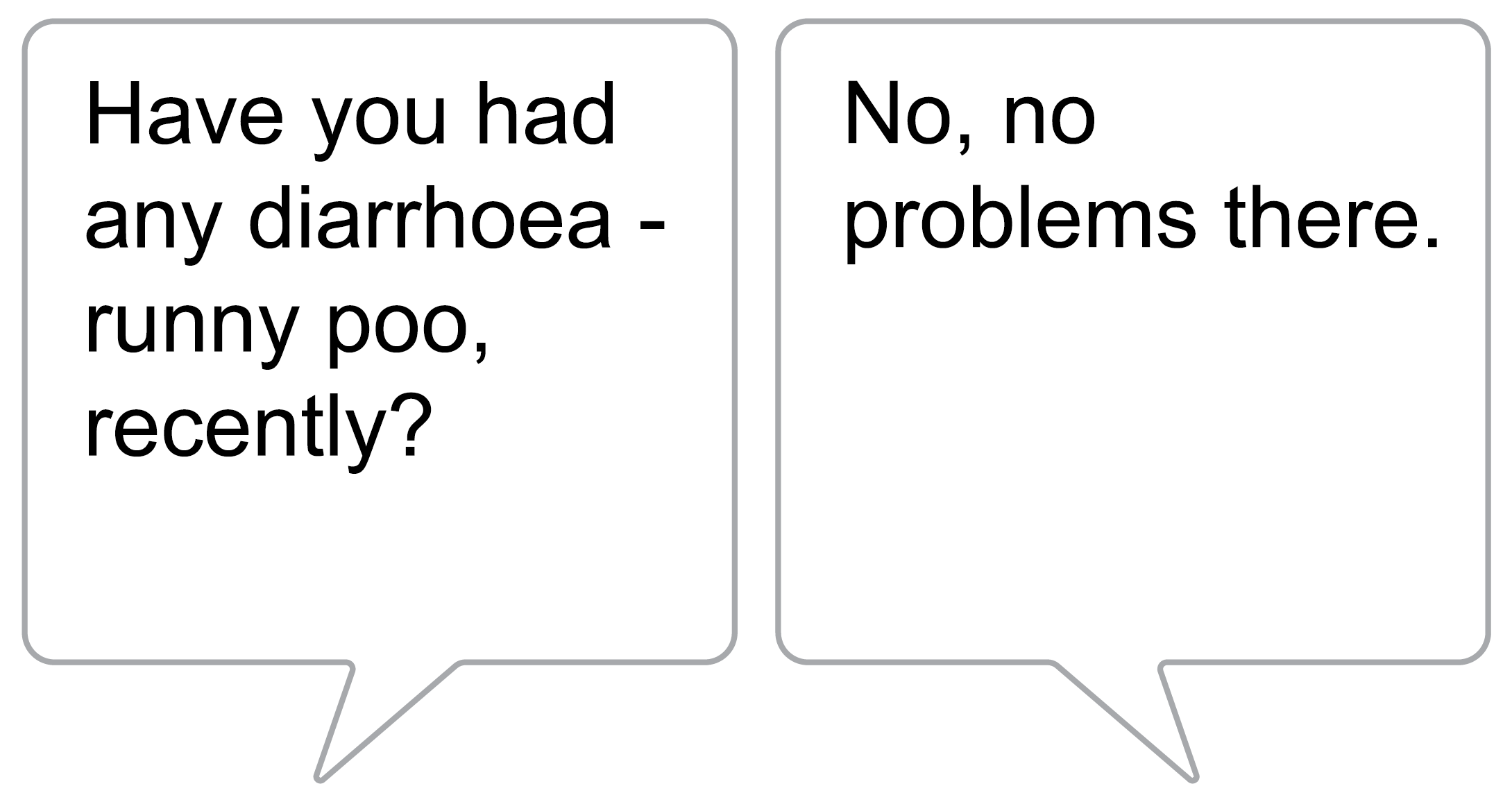

1. What did you notice about the way Ben’s health worker asked the questions?
(Select all that apply)
a) and b) are both correct:
The health worker used simple words for urine and stool so that it was clear for Ben what he was asking.
The health worker also asked Ben’s permission to refer him due to the warning sign of blood in Ben’s urine.
c) is not correct. The health worker recognized that Ben required a referral but did not try to diagnose the reason.
2. Should the health worker continue with the assessment to select suitable absorbent products for Ben?
Yes, the health worker should continue assessment. Ben may benefit from continence products to contain leaks while waiting for his health assessment.
Ask: are you experiencing: signs of a urine infection? (describe signs to person)
![]()
A urine infection (urinary tract infection) is an infection, usually from bacteria. It may be anywhere in a person’s urinary system.
Signs of a urine infection are:
- Urine is a dark colour, or cloudy, or has a strong smell
- Needing to pass urine more often than usual
- Discomfort during or after passing urine
- Fever or feeling unwell.
If a person reports any of the above refer to a health professional.
You may also offer some simple advice to assist.
Learn more about advice for urine infections in Lesson four.
Question

Meet Gabriel
Gabriel is seven years old and lives with his mother and brother. He has difficulty talking and he rarely sits still. His mother is helping him learn to use the toilet, and in particular to sit on the toilet long enough to empty his bowels. He quite often has bowel accidents.
Gabriel and his mother visited their health centre for advice. Their health worker suggests an assessment for absorbent products, to contain leaks while Gabriel learns to use the toilet.
This is how the health workers asked questions to check if Gabriel has signs of a urine infection.
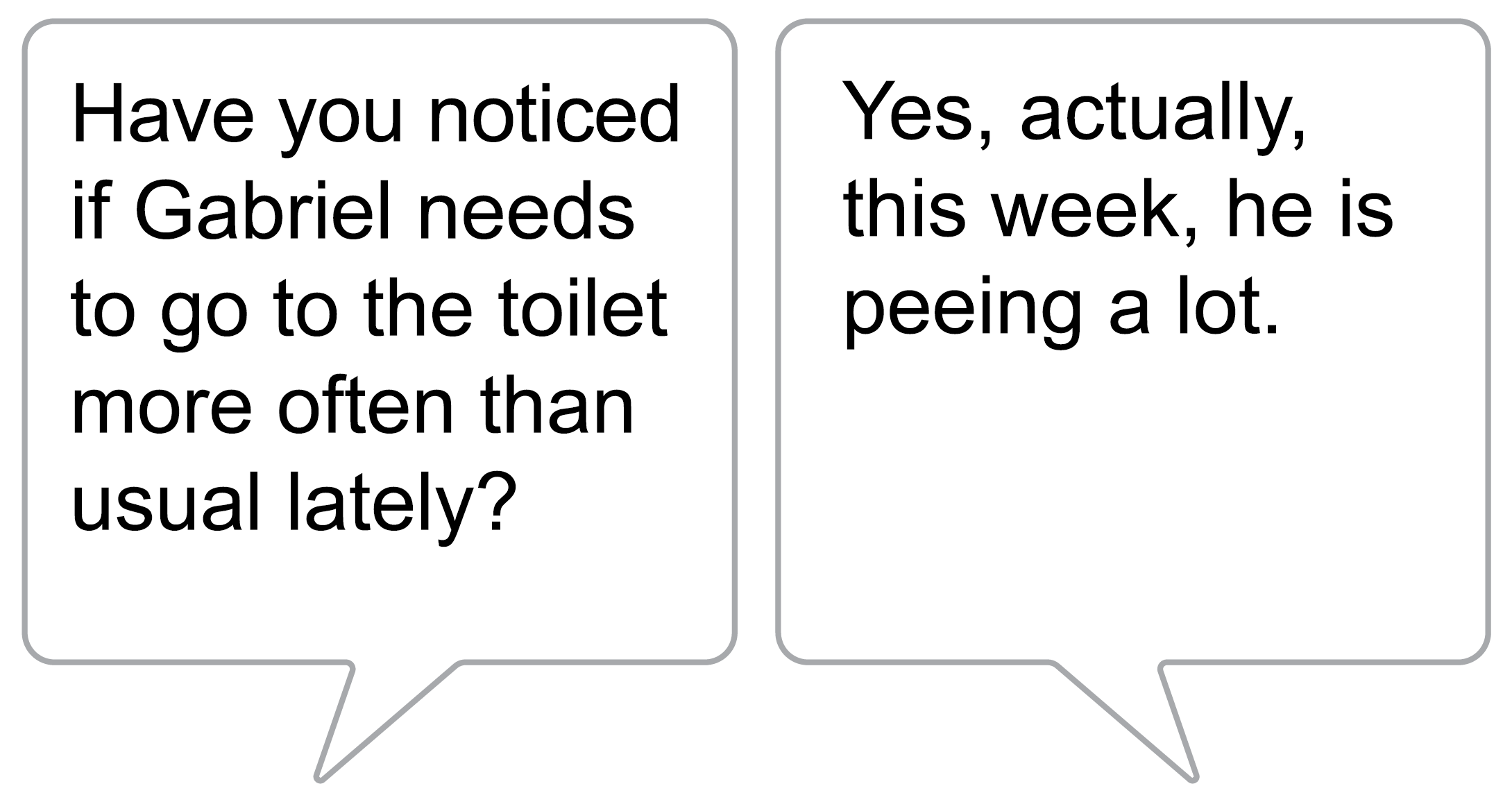
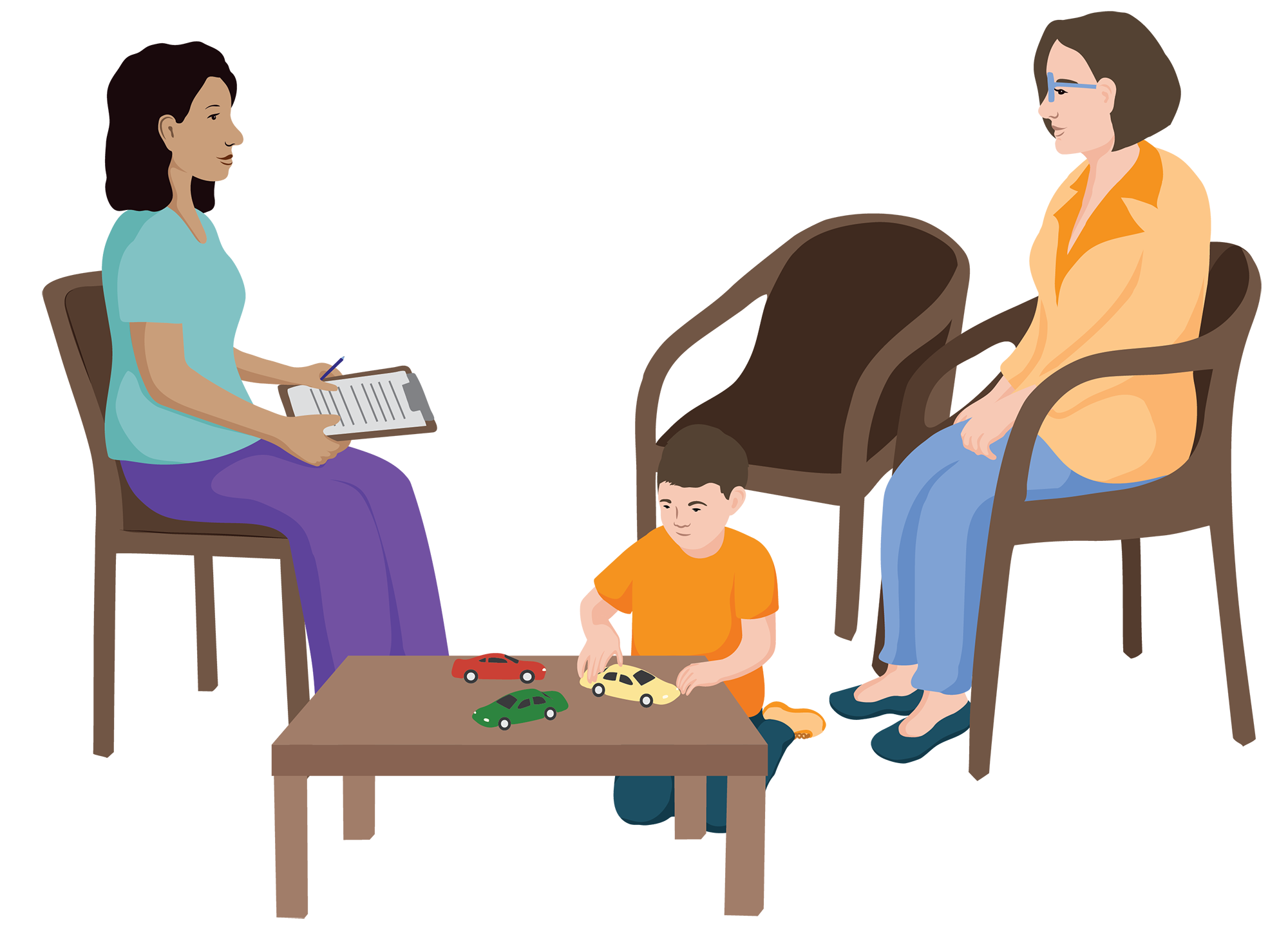
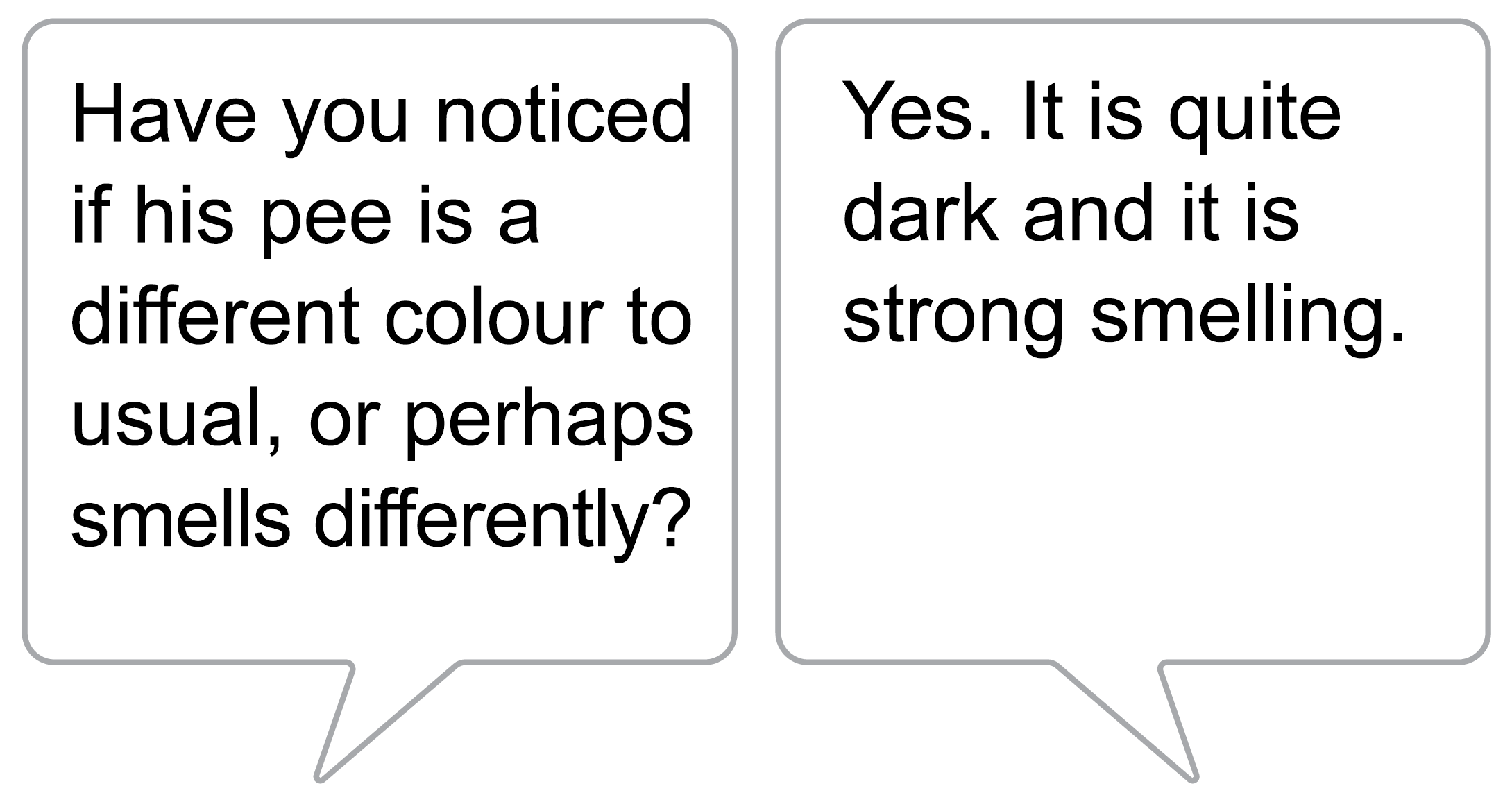

1. What did you notice about the way Gabriel’s health worker set up the interview and asked the questions?
(Select all that apply)
a), b) and c) are all correct.
The health worker described possible symptoms, to help make her question clear.
The health worker asked a few different questions, not just one question to find out about possible symptoms.
The health worker has created a relaxed and friendly environment for the interview by including some child height furniture and toys.
2. What actions should the health worker take?
a), b) and c) are all correct
Gabriel’s mother described two symptoms of a urine infection. The health worker should refer Gabriel to a health professional and give simple advice on managing urine infections.
The health worker should continue the assessment because Gabriel is experiencing leaks of stool.
Ask: are you experiencing: constipation?
![]()
Not emptying the bowel regularly or straining to pass hard, dry stool is called constipation.
Check your knowledge of the signs of constipation.
Question
Which of the following are a sign that a person may have constipation:
a), b) and c) are correct. These are all signs of constipation.
One other sign of constipation is diarrhoea. Sometimes liquid diarrhoea leaks past hard stool.
If a person has of any of the above signs of constipation refer to a health professional.
You may also offer some simple advice to assist in the meantime.
Learn more about advice for constipation in Lesson four.
Ask: Do you have any skin problems such as a rash, or pressure wound on your bottom, thighs, lower back or groin area (inside top of legs)?
Rashes
Rashes are a sign the skin has been irritated. They can be caused by frequent and/or lengthy contact with urine or stool. Rashes can be painful. If not managed, rashes can develop into wounds.
Changing absorbent products as soon as possible after a leak can help prevent rashes. If a person has a rash, changing immediately is essential to help heal the skin.
A person who has problems with rashes, will need more absorbent products to allow for more frequent changing.
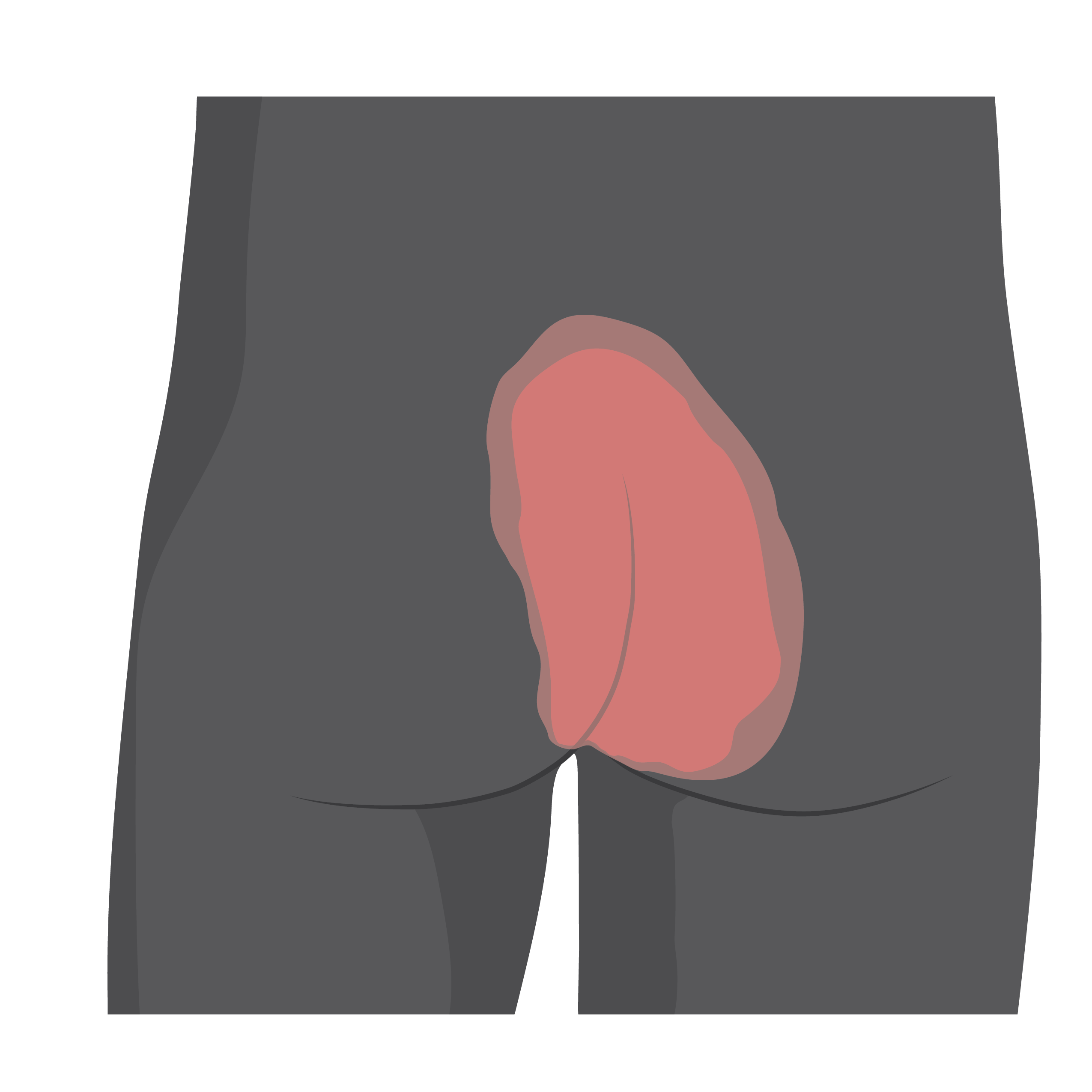
Pressure wounds
A common area for pressure wounds is a bony area on the bottom and hips.
To help pressure wounds heal, avoiding pressure on the wound is important.
There is a high risk of infection of a pressure wound if it comes into contact with urine or stool.
Immediately changing absorbent products after a leak and cleaning the skin is essential to reduce the risk of wound infection. People may need more absorbent products to allow more frequent changing.
See the TAP Mobility assistive products module for more information about pressure wounds.
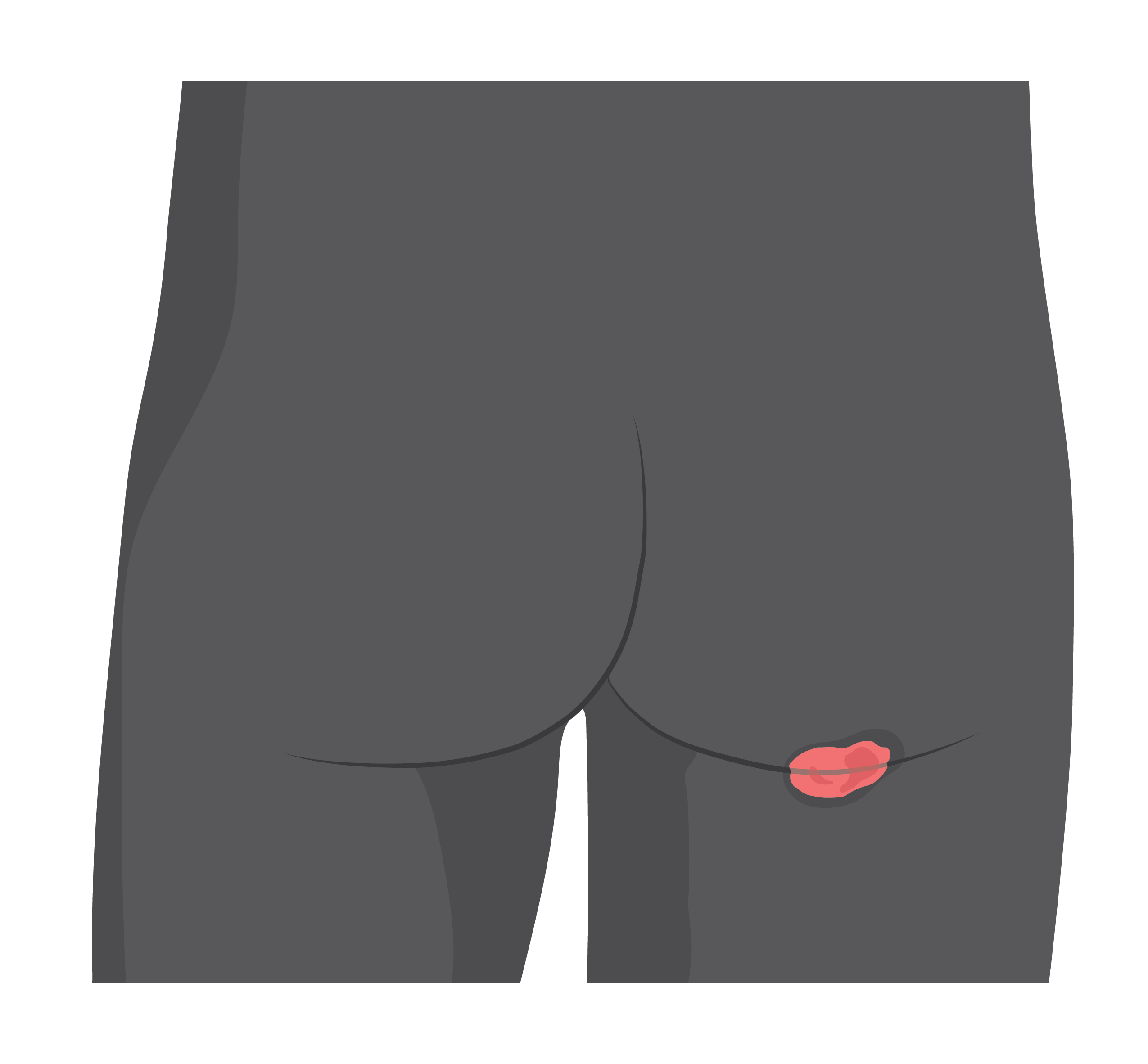
If anyone has skin problems such as a rash or pressure wound refer to health professional for further advice.
Providing advice on changing absorbent products regularly, skin care and avoiding pressure is also important.
Learn about advice for skin care in Lesson four.